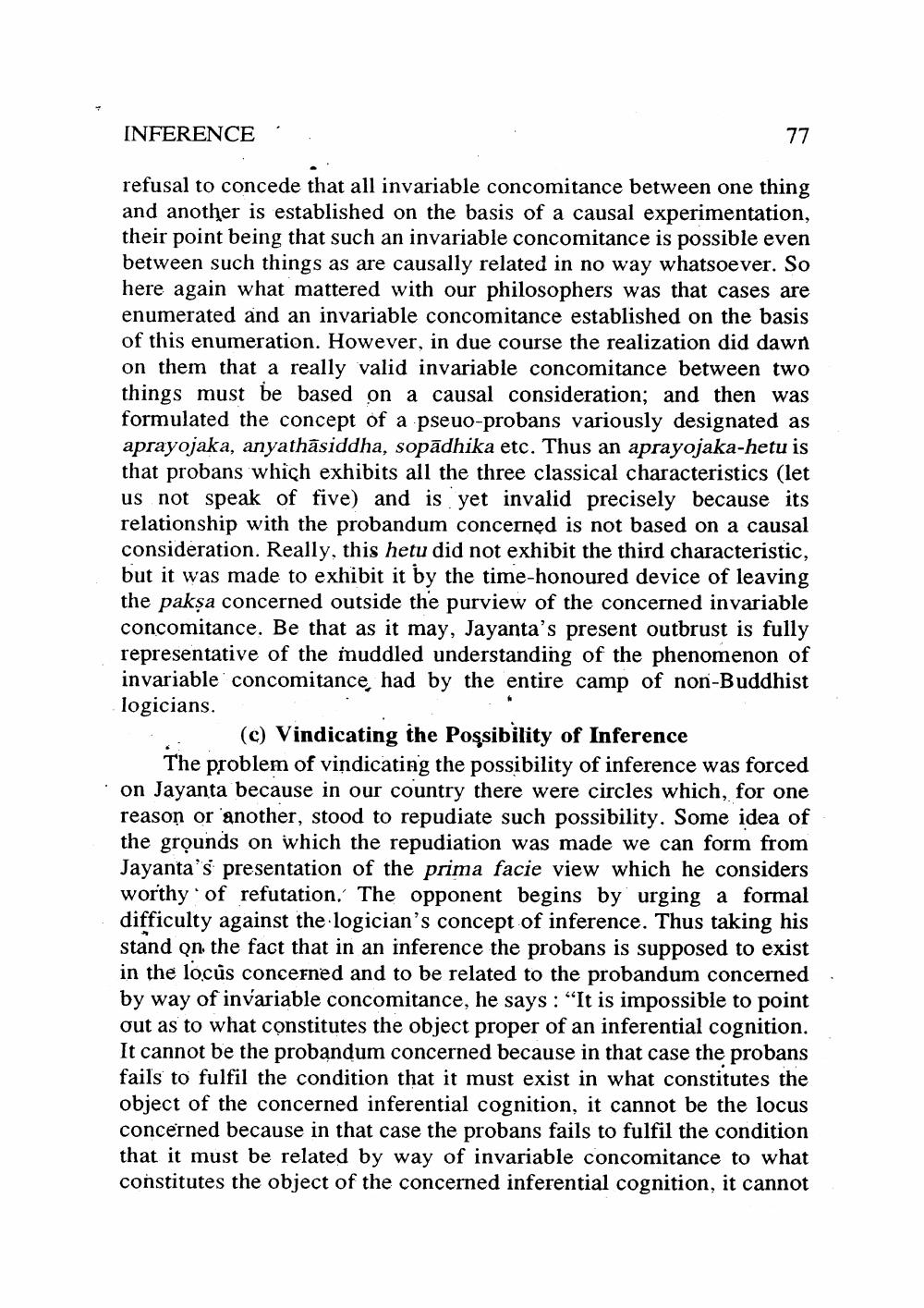________________
INFERENCE
77
refusal to concede that all invariable concomitance between one thing and another is established on the basis of a causal experimentation, their point being that such an invariable concomitance is possible even between such things as are causally related in no way whatsoever. So here again what mattered with our philosophers was that cases are enumerated and an invariable concomitance established on the basis of this enumeration. However, in due course the realization did dawn on them that a really valid invariable concomitance between two things must be based on a causal consideration; and then was formulated the concept of a pseuo-probans variously designated as aprayojaka, anyathāsiddha, sopādhika etc. Thus an aprayojaka-hetu is that probans which exhibits all the three classical characteristics (let us not speak of five) and is yet invalid precisely because its relationship with the probandum concerned is not based on a causal consideration. Really, this hetu did not exhibit the third characteristic, but it was made to exhibit it by the time-honoured device of leaving the pakṣa concerned outside the purview of the concerned invariable concomitance. Be that as it may, Jayanta's present outbrust is fully representative of the muddled understanding of the phenomenon of invariable concomitance had by the entire camp of non-Buddhist logicians.
(c) Vindicating the Poşsibility of Inference The problem of vindicating the possibility of inference was forced · on Jayanta because in our country there were circles which, for one reason or another, stood to repudiate such possibility. Some idea of the grounds on which the repudiation was made we can form from Jayanta's presentation of the prima facie view which he considers worthy of refutation. The opponent begins by urging a formal difficulty against the logician's concept of inference. Thus taking his stand on the fact that in an inference the probans is supposed to exist in the locus concerned and to be related to the probandum concerned by way of invariable concomitance, he says: “It is impossible to point out as to what constitutes the object proper of an inferential cognition. It cannot be the probandum concerned because in that case the probans fails to fulfil the condition that it must exist in what constitutes the object of the concerned inferential cognition, it cannot be the locus concerned because in that case the probans fails to fulfil the condition that it must be related by way of invariable concomitance to what constitutes the object of the concerned inferential cognition, it cannot




